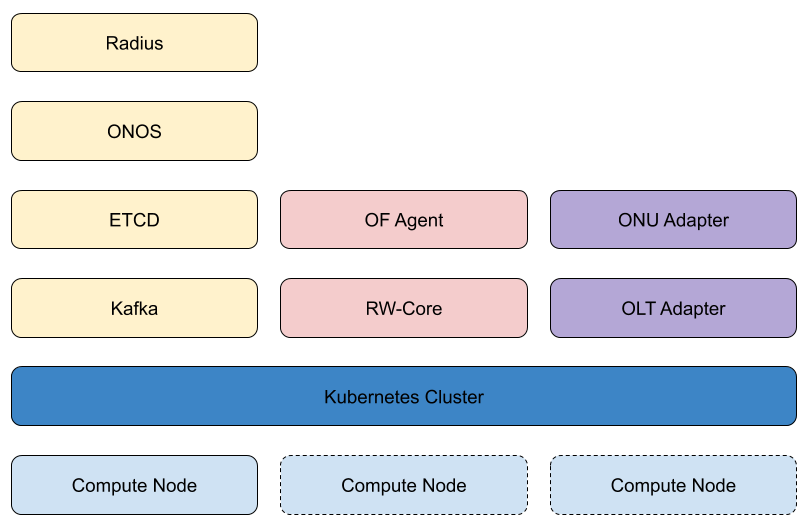VOLTHA Deployment Environment
All the components in the VOLTHA project are containerized and the default
deployment environment is kubernetes.
Generally VOLTHA is installed in one of two setups:
A physical
kubernetescluster, generally used for production deployments.A virtual
kindcluster, generally used for development.
Regardless of the chosen environment the deployment process is the same, more on this later, and the installation can be managed in the same way.
Managing a VOLTHA deployment
VOLTHA components on top of kubernetes are managed via helm charts.
For more information about helm please refer to the Official Documentation.
For the sake of this guide all you need to know is that an
helm chart describes all the information required to deploy a component on top of
kubernetes, such as: containers, exposed ports and configuration parameters.
A VOLTHA deployment is composed, at its very minimum, by:
Infrastructure
A
kafkacluster (can also be a single node)An
etcdcluster (can also be a single node)ONOS(single or multi instance)[Optional]
radius(for EAPOL based authentication)
VOLTHAvoltha-coreandofAgent(contained in the samehelmchart)
Adapters
[one or more] adapter pair(s) (OLT adapter + ONU Adapter)

VOLTHA Kubernetes deployment
Note that the Infrastructure components can be deployed outside of the
kubernetes cluster.
You can read more about VOLTHA deployments in:
Tooling
To simplify the installation of VOLTHA we provided a tool called kind-voltha.
You can read more on kind-voltha in its own documentation.